The United States is incredibly blessed to have an abundance of natural arches and bridges. Not only are natural bridges and arches stunning works of nature, the shapes, sizes, and surrounding ecosystems are varied and full of adventure.
In order to reach many of these naturally made arches and bridges, you have to hike your way across various landscapes"”but it is definitely worth the adventure.
For those ready to be amazed, here are the top 10 natural bridges and arches in the USA.
Related Read: 20 Essential Things To Pack When Visiting National Parks
| Table of Contents [Show] |
|---|
Affiliate links may be used in this post. I may receive a small commission at no extra cost to you if you use my affiliate link.
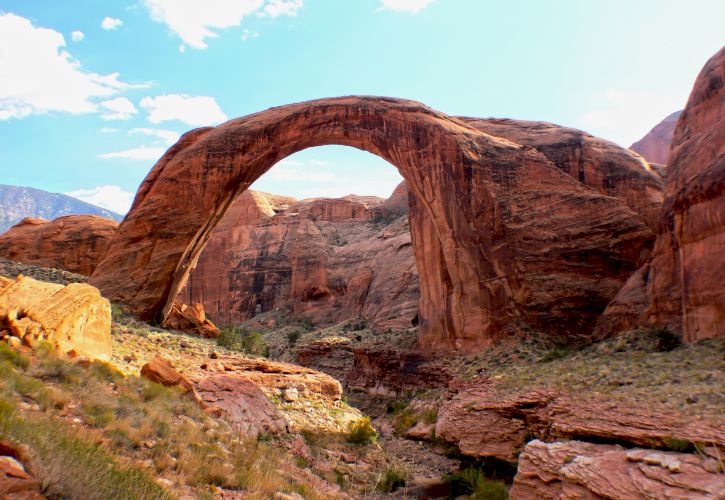
Often referred to as the largest natural bridge in the United States, the Rainbow Bridge spans 275 feet and has a height of 246 feet. Sitting next to the placid Lake Powell and Navajo Mountain, the Rainbow Bridge is a gorgeous natural wonder that is the perfect landmark for walking the backpacking trails. If you aren’t up for walking around the area, there are boat tours on the lake that make for a perfect afternoon snapping pictures of this famous natural bridge.
Address: Lake Powell, UT 84533
Also Read: Top Tourist Attractions in Utah
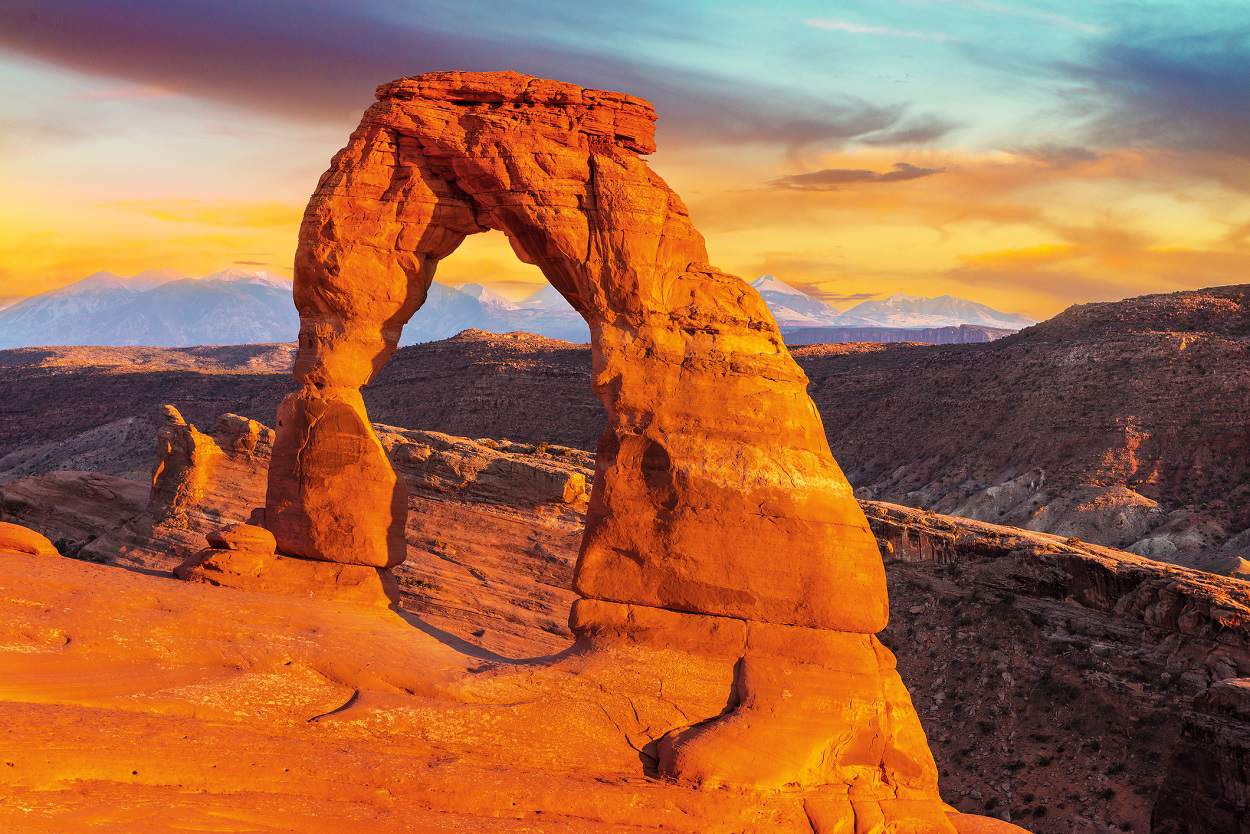
Located in Arches National Park near Moab, the Delicate Arch is a splendid formation that took millions of years to form. Over time, weathering from wind, rain, and sand carved out this freestanding natural arch. There are two ways to get to Delicate Arch. The first trail is 2.5 miles long and covered with slick rocks and steep terrains. The other, shorter trail is completely uphill. The sweat is worth it, though, for the delicate balance that keeps the arch standing is mind-blowing up close.
Address: Arches National Park, UT 84532
Also Read: Top 5 Things to See in Arches National Park, Utah
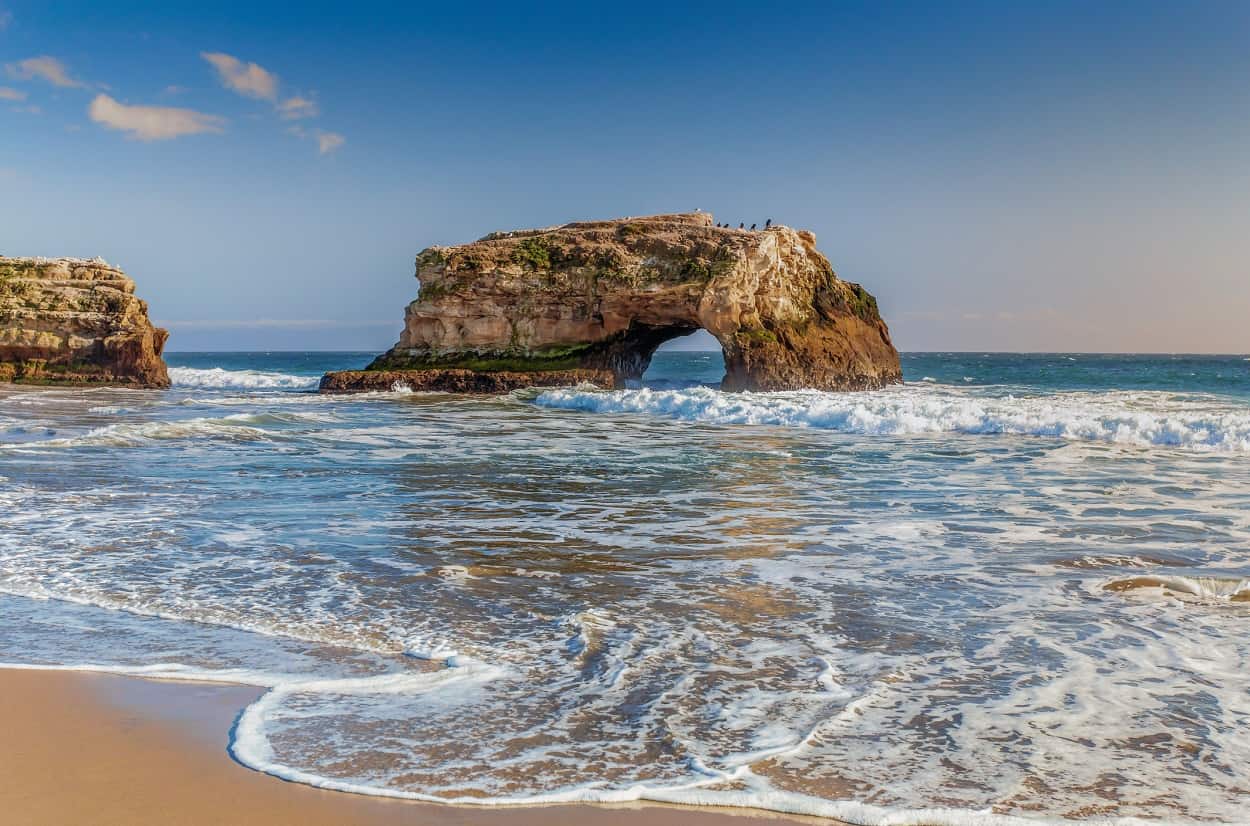
California has the lion’s share of natural bridges, especially along the coastline, but the best place to go see several of them would be the Natural Bridges State Beach in Santa Cruz. Though time has worn some of the bridges away, you can still walk beneath the remaining arches during low-tide. There are also thousands of monarch butterflies that can be seen in Monarch Grove during Mid-October. With the natural bridges in the background, the day will be filled with memory-making magic.
Address: 2531 W Cliff Dr, Santa Cruz, CA 95060
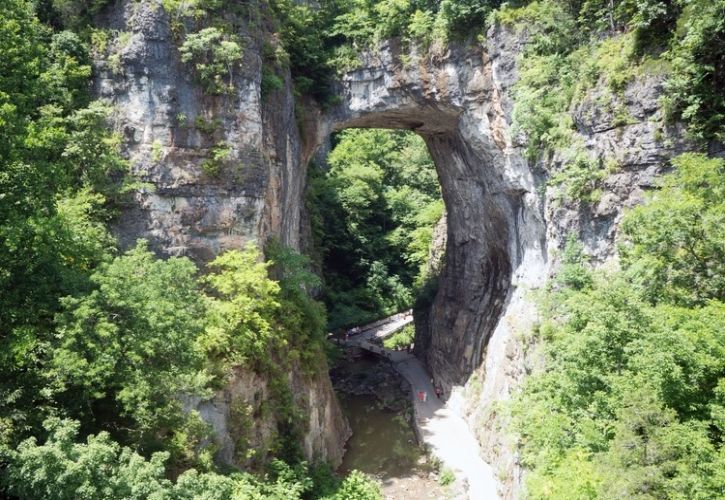
Virginia’s Natural Bridge is said to be one of the Several Natural Wonders of the Modern World. In the past, the bridge was worshiped by the Monacan Indians, who called it the "bridge of God." Often the subject of paintings, the Natural Bridge, has become a window to serenity. Located off the Blue Ridge Parkway, it is also easy to get to. While you are exploring Natural Bridge, check out the Caverns at Natural Bridge (located 34 stories below ground) and the Monacan Indian Living History Village to learn more about how the bridge came to be.
Address: 15 Appledore Ln, Natural Bridge, VA 24578
Also Read: Top Tourist Attractions in Virginia
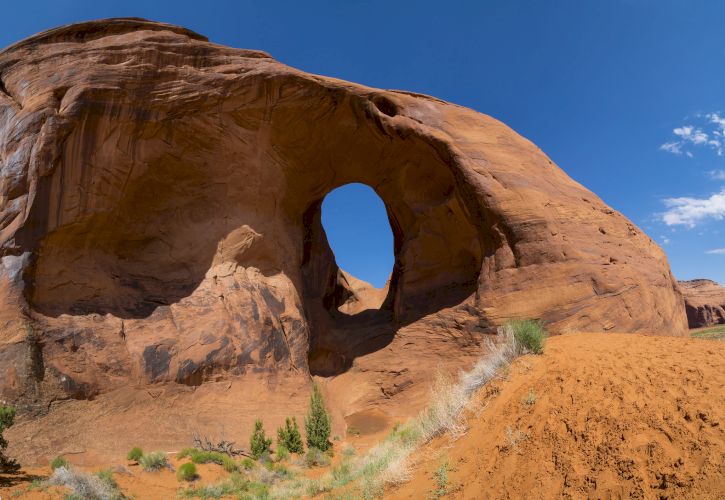
One of the best examples of what is called a "pothole" arch in the United States, the Ear of the Wind arch in Arizona is quite unique. Since the arch is located in Central Monument Valley and to the south, it isn't easy to reach there. In the summer, the days can reach a temperature over 100 degrees Fahrenheit; and there are also snakes to take into account. Thus, if you want to see the Ear of the Wind Arch, you have to go off-season and go off the beaten path.
Address: Oljato-Monument Valley, AZ 84536
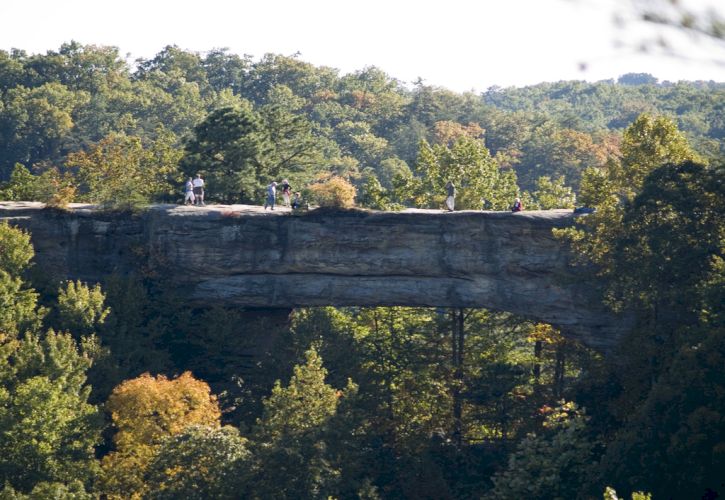
Standing 6.5 stories high, the Kentucky Natural Bridge is a sight to behold. The bridge can be found in Eastern Kentucky amid mountains, within Kentucky’s Daniel Boone National Forest. The bridge is thought to have been formed when large sandstone pieces fell off the side of a narrow ridge and were carved into shape by weathering and root systems. Surrounding the bridge is more than 18 miles of trails and the 40-acre Mill Creek Lake. However, nothing is quite as spectacular as the Natural Bridge!
Address: Natural Bridge Rd, Slade, KY 40376
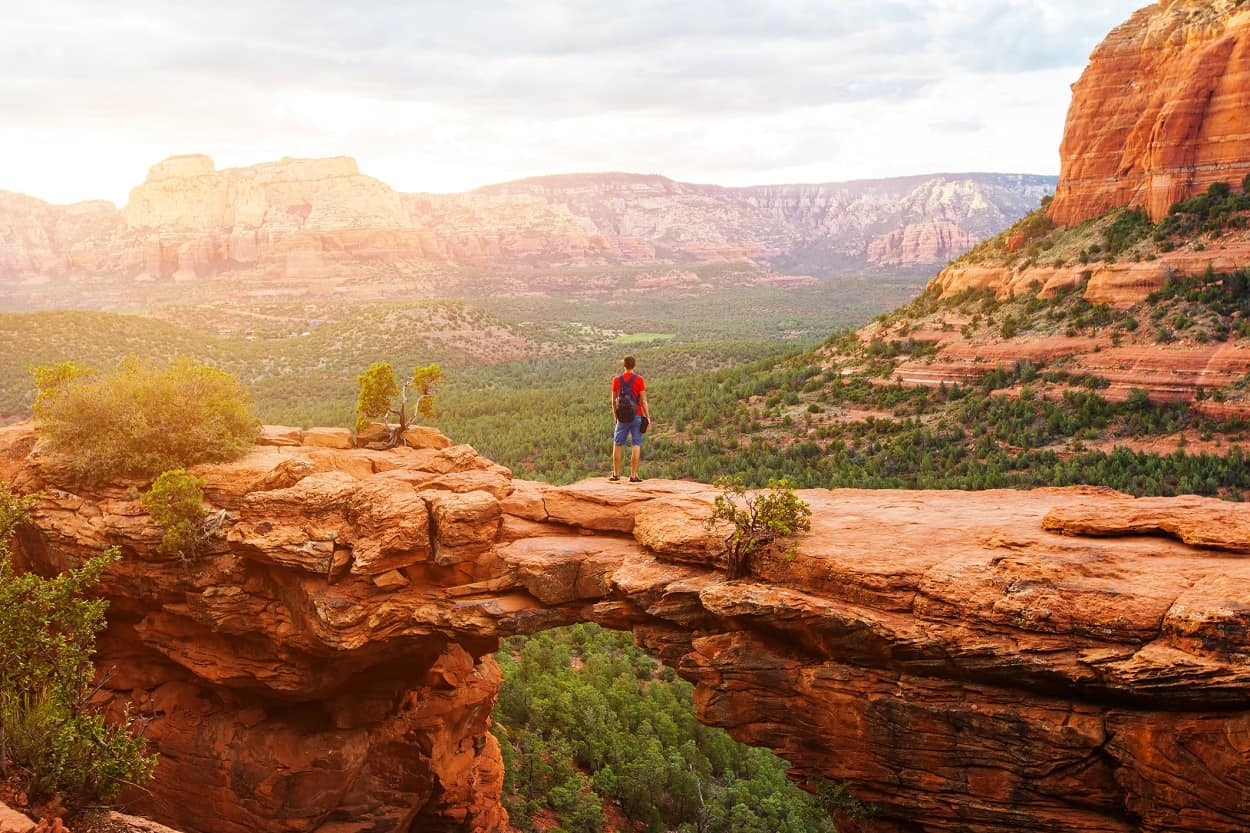
There happen to be several natural bridges and arches in Sedona, Arizona, including Vultee Arch, Fray Canyon Arch, and the most famous Devil’s Bridge. Despite the name, this is actually a natural arch created by wind and erosion instead of water. To reach the Devil’s Bridge, you can walk the well-traveled Devil’s Bridge Trail (around 0.8 miles long), weaving your way through the lush vegetation of Pinyon-juniper, agave, and more to reach the rich red arch called Devil’s Bridge.
Address: 1420 Vultee Arch, Sedona, AZ
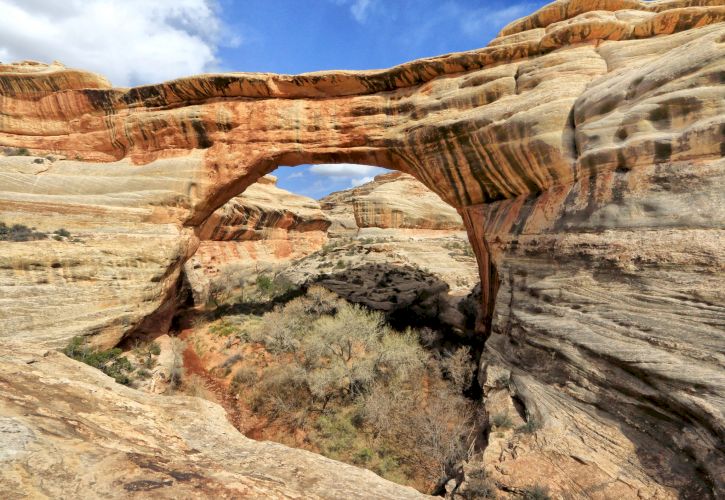
The Sipapu Natural Bridge is one of three at the Natural Bridges National Monument in Utah and dates back to at least 5,000 years. Sipapu and the other bridges, Kachina and Owachomo, were formed much like other bridges"”through wind and erosion"”but the process that carved out Sipapu is thought to have begun around 260 million years ago when the area was a beach. Now, you can hike this natural bridge, enjoying the views from the top.
Address: Natural Bridges National Monument, Blanding, UT 84511
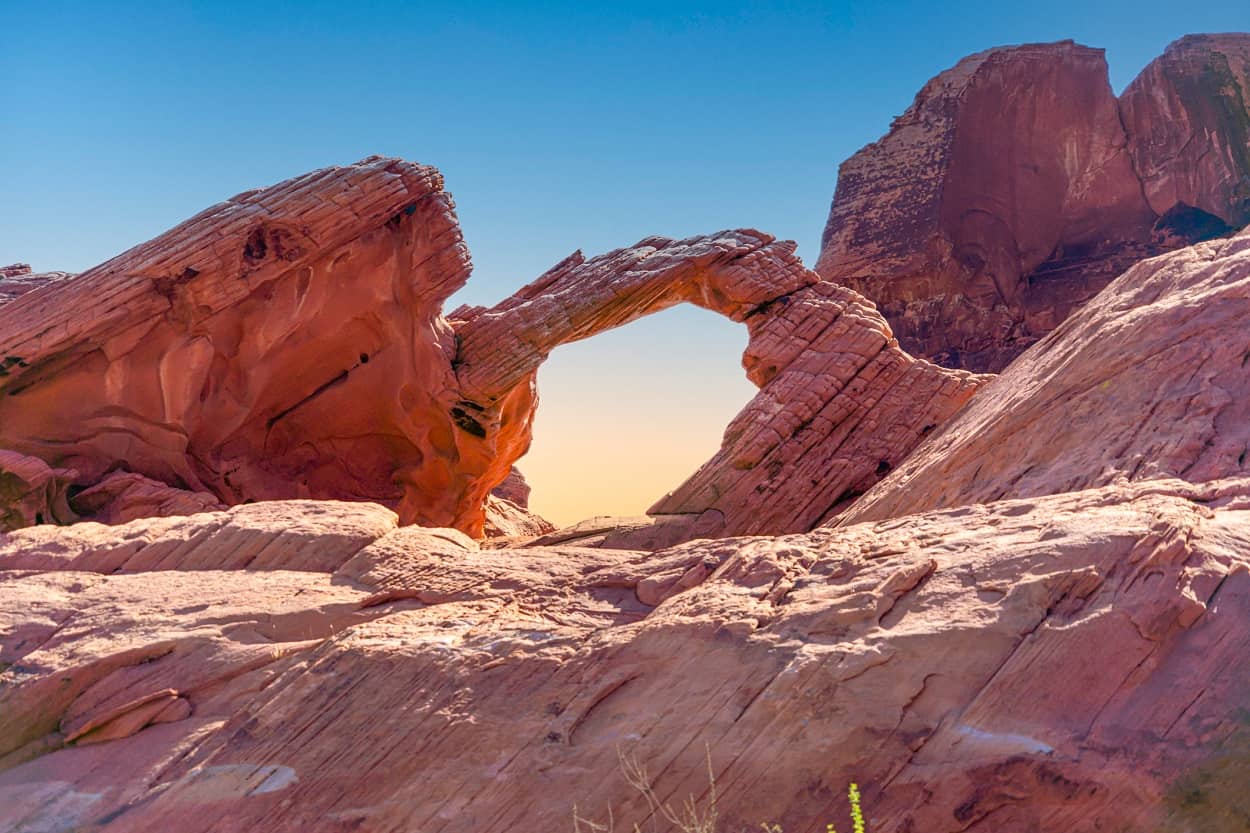
50 miles south of Las Vegas is Valley of Fire State Park. Going to this park is proof that you don’t need to hit 777 on the slot machines to win big, especially when you journey to see the Arch Rock. Though the natural arch itself isn’t huge, the color is mesmerizing, and the shape is quite unique. Because the rock is also delicate, it is illegal to climb. That said, there are plenty of trails to explore, including another famous landmark, Piano Rock.
Address: Valley of Fire State Park, Overton, NV 89040
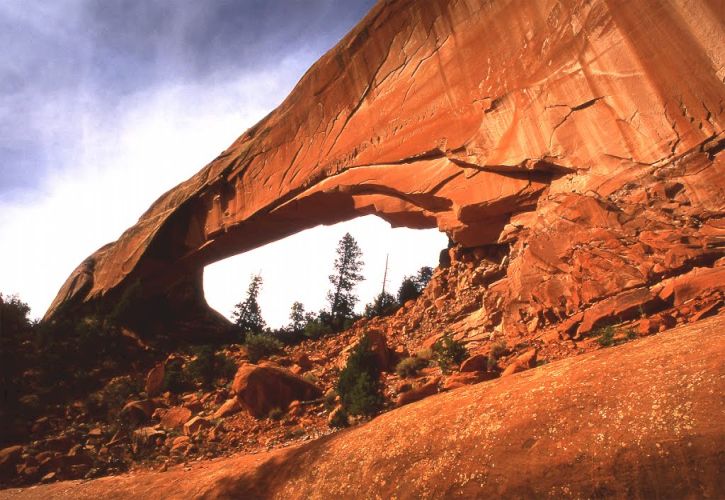
To find this natural wonder, you have to head towards the Navajo Indian settlement of Sanostee. Though not a true natural bridge, Snake Bridge is one of the longest arches in the United States. It rises to 61 feet in the air and spans across 205 feet. Though the shape itself is not reminiscent of a snake, the name is derived from an ancient carving of a serpent on the underside of the arch.
Address: Sanostee, NM 87461
Also Read: Top 25 Tourist Attractions in New Mexico